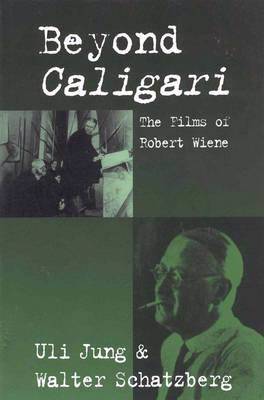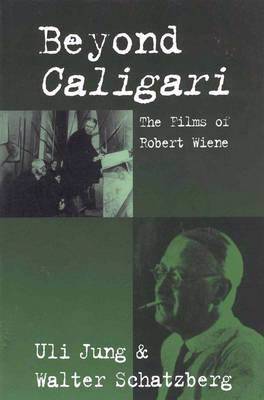
- Afhalen na 1 uur in een winkel met voorraad
- Gratis thuislevering in België
- Ruim aanbod met 7 miljoen producten
- Afhalen na 1 uur in een winkel met voorraad
- Gratis thuislevering in België
- Ruim aanbod met 7 miljoen producten
Omschrijving
While the Cabinet of Dr. Caligari became an international film classic, its director, Robert Wiene, was disparaged and even forgotten. Wiene's oeuvre, however, exhibits a surprising versatility and quality, featuring Raskolnikov, an expressionist adaptation of Dostoevsky's novel, INRI, a monumental Bible epic, Orlac's Hands, a psychological thriller, and Der Rosenkavalier, an ambitious opera film. His last film, Ultimatum(1938), is a vehement warning of approaching war, which remains relevant today. With painstaking research of the major European film archives, the author's detailed portrait reveals a career far more differentiated than hitherto acknowledged. Caligar/i - though rated the second most important film in German film history in a recent critic's and scholar's poll - was a landmark rather than a culmination in a career that successfully oscillated between artistic and commercial interests.
As the field of film studies rediscovers film history and the value of historical context for the analysis of individual films, monographs on filmmakers are increasingly valuable to scholars and students of both film history and cultural studies. Through the provocative and prolific career of Robert Wiene, a wider, more dynamic view of fantasy production in the Weimar Republic is revealed, enabling the reader to better appreciate the complex shapes of Weimar cinema, its inimitable blend of modernism and mass culture, of avant-garde enterprie, and generic production.
Specificaties
Betrokkenen
- Auteur(s):
- Uitgeverij:
Inhoud
- Aantal bladzijden:
- 240
- Taal:
- Engels
Eigenschappen
- Productcode (EAN):
- 9781571811561
- Verschijningsdatum:
- 1/05/1999
- Uitvoering:
- Hardcover
- Formaat:
- Genaaid
- Afmetingen:
- 152 mm x 229 mm
- Gewicht:
- 512 g

Alleen bij Standaard Boekhandel
Beoordelingen
We publiceren alleen reviews die voldoen aan de voorwaarden voor reviews. Bekijk onze voorwaarden voor reviews.












